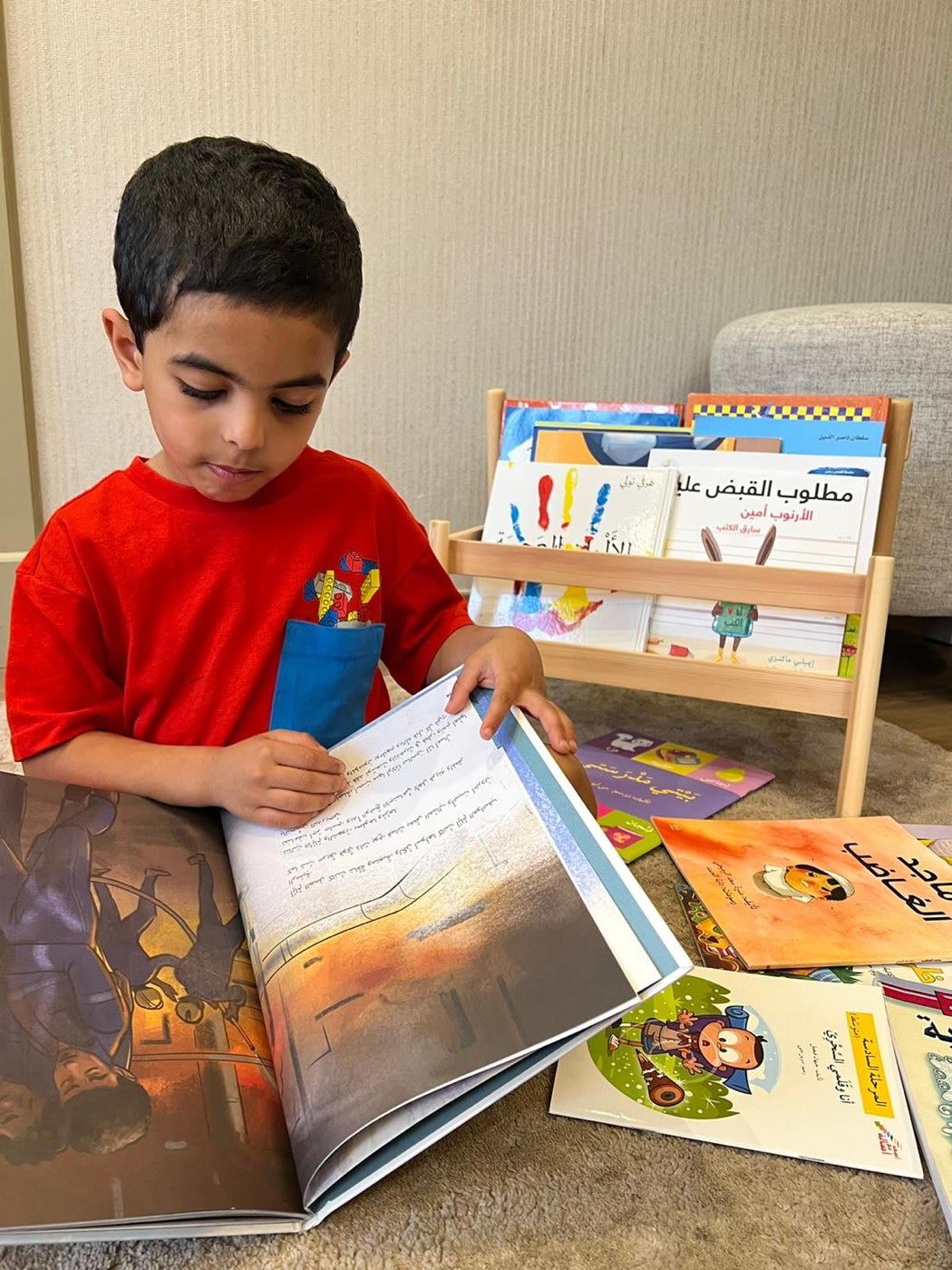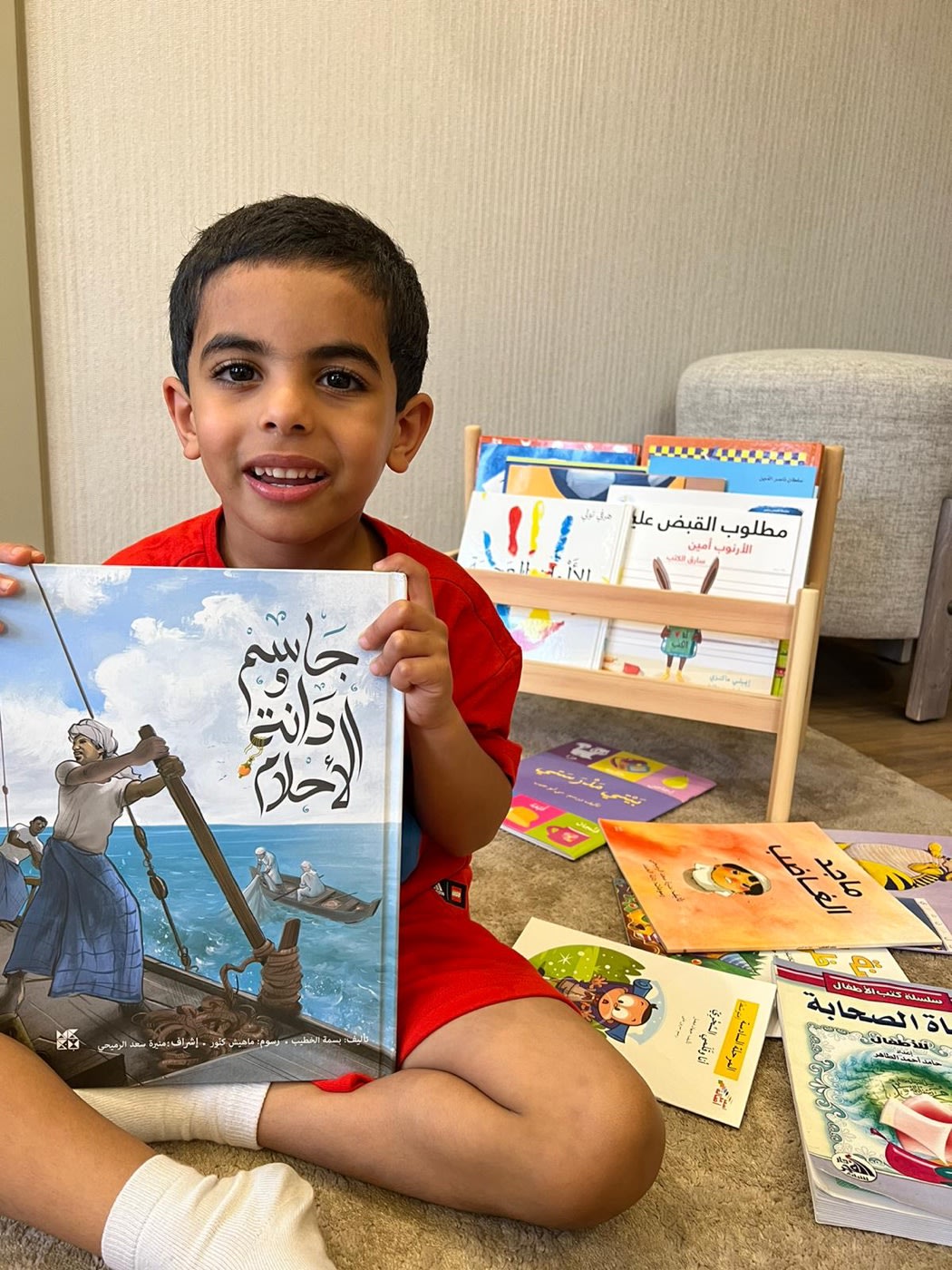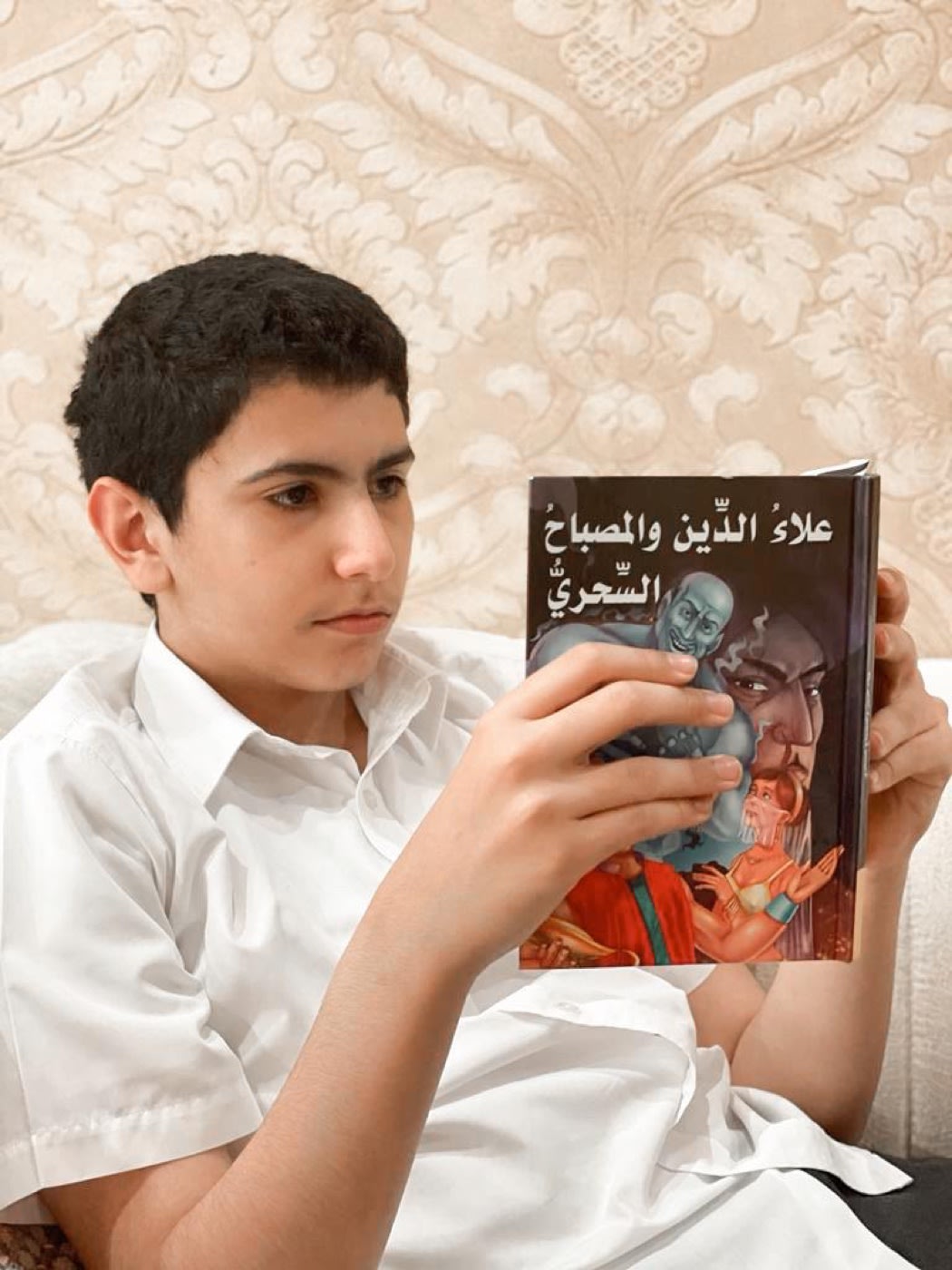Coronavirus (COVID-19) Updates
For the latest COVID-19 information and updates from Qatar Foundation, please visit our Statements page

Daily Arabic reading and memorizing the holy Qur’an constantly adds new vocabulary that enhances children’s linguistic inventory.
Image source: abu_zeina, via shutterstockOn World Arabic Language Day, parents of students in QF schools highlight the role of the Arabic language in shaping their children's identity
If we could look at our children about 20 years from now, what would we hope to see?
Amid the expansion of media and digitization in our world, together with a cultural openness that does not recognize borders, the mother tongue plays a pivotal role in shaping children’s identity and strengthening their sense of belonging and connection with their ancestral history. And on World Arabic Language Day, parents of students at Qatar Foundation schools have shared their views about advancing the use of the language by their children, and how they enable this within their families.

Studies have shown that children who master their mother tongue are better able to learn foreign languages.
Nayla Ahmed Al-Musallam, the mother of a student at Qatar Academy Msheireb (QAM), part of Qatar Foundation’s (QF) Pe-University Education (PUE), emphasized the intrinsic value that the Arabic language has held for her family over the generations. “First, the importance of the Arabic language lies in the fact that it is the language of the Holy Qur’an,” she said. “Without Arabic, how can our children enjoy the stories of the Holy Qur’an, the Sīrah [prophetic biography], supplication, and prayer?
The Arabic language is part of our identity, and is of paramount importance in building a powerful personality for children and enhancing their belonging to their community
“Secondly, the Arabic language is part of our identity, and is of paramount importance in building a powerful personality for children and enhancing their belonging to their community. The sense of belonging is one of a child’s psychological needs, and, without it, their personality and self-esteem are negatively affected.
A child’s brain needs to master the mother tongue so that they can form a developed linguistic apparatus that paves the way for learning other languages
“As a family, we believe in the importance of learning languages and being open to other cultures, but a child’s brain needs to master the mother tongue so that they can form a developed linguistic apparatus that paves the way for learning other languages. Studies have shown that children who master their mother tongue are better able to learn foreign languages.”
As for the challenges facing children today in embracing their native language, and the threat they pose to their association with Arabic, Aisha Sultan Al-Humaidi, the mother of a student at Qatar Academy Al Khor (QAK), part of QF’s PUE, believes that the responsibility to address them lies with the community as a whole.
"I believe there are obvious reasons behind the decline in the level of the Arabic language among the new generations,” she said.

Mastering Arabic language builds a sense of belonging to children in the Arab world which is one of a child’s psychological needs.
“This includes exposure to non-meaningful media, and the interest of many parents in English and considering it the language of priority in academic study, with some considering it as a requirement for social prestige. This is in addition the spread of the so-called Arabizi [Arabic chat alphabet] among young people on social media platforms and digital apps.”
As mothers who understand the importance of Arabic in the formation and development of basic aspects of children’s personalities, both Al-Humaidi and Al-Musallam believe there are practices that must be applied and adhered to by families to instill Arabic in the consciousness of their children from a young age. This is especially the case when taking into account the spread of digital technology and foreign languages, which have become a prerequisite for access to education and knowledge.
Right from the beginning, we were keen to instill some habits to nurture the love of Arabic in our children
“Right from the beginning, we were keen to instill some habits to nurture the love of Arabic in our children, including conducting conversations with them at home in Arabic and choosing topics that attract and interest them,” Al-Musallam explained.
“Conducting conversations in Arabic constantly adds new vocabulary that enhances children’s linguistic inventory. We also made sure that our children memorize the Holy Qur’an, and we used language games – such as puzzles and jigsaw puzzles – to attract them, especially in the first seven years of their life.
“Reading in Arabic daily, whether during the day or before bed, is also vital. In Qatar, we are fortunate to have such an initiative as Qatar Reads [a QF initiative]. We are members of its Family Reading Program and eagerly await books and monthly programs. And we also watch the Siraj TV series [also a QF initiative], which aims to nurture the love of Arabic in children. It's one of our favorite shows,"
Our perspective on teaching Arabic to children should go beyond the classroom, where the process should be continuous even outside school
Meanwhile, Al-Humaidi believes innovative ways to get students interested in language are needed. “Our perspective on teaching Arabic to children should go beyond the classroom, where the process should be continuous even outside school,” she said.
“We should design interesting Arabic language competitions, as well as creating high-quality Arabic anime. It is one of the most popular types of content among children and young people.”
Both Al-Humaidi and Al-Musallam agree on the importance of choosing a supportive school environment for children to learn Arabic as a first language, as well as the role of reading to children daily from birth, and motivating them to choose the topics they prefer without feeling they are being forced.

The celebration of World Arabic Language Day coincides with Qatar National Day, which Al-Musallam sees as a good thing. “Linking the Arabic language with everything joyful inevitably has a positive impact, and we are keen to see our children participate in national celebrations as an opportunity to instill a sense of belonging in their conscience, enhance their national identity, and take pride in our mother tongue.”

